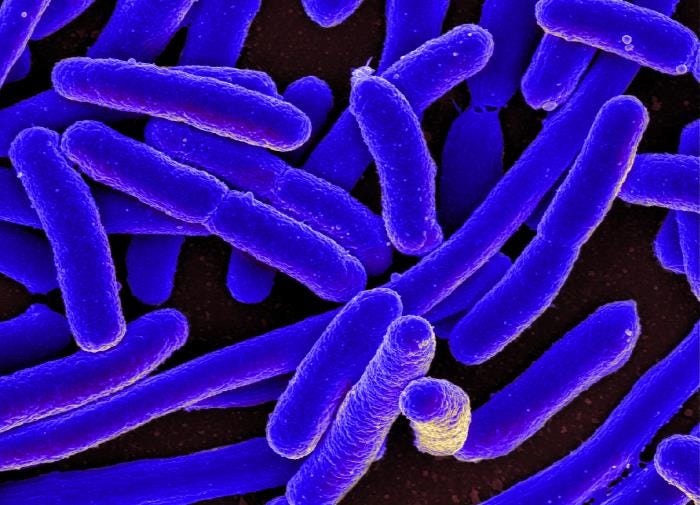Norway battling two GI infection outbreaks
EHEC and Salmonella Napoli
EHEC
“This is a serious situation and many young children have become very ill. This is the largest EHEC outbreak we have had in Norway”, says section leader Susanne Hyllestad at the Norwegian Institute of Public Health, or Folkehelseinstituttet (FHI).
The FHI reports 24 infections have been reported in this ongoing outbreak. The affected were in the age range of one to 55 and live in Trøndelag (15), Viken (4), Vestfold and Telemark (2), Innlandet (1), Møre and Romsdal (1) and Nordland (1) from July to October 2023..
15 of the infected are under the age of 13. Nine of the children have developed the serious complication, hemolytic uremic syndrome (HUS).
There is close cooperation between the Institute of Public Health, the Norwegian Food Safety Authority, the Veterinary Institute and the concerned municipal chief medical officers. The outbreak bacterium has been found in hamburger, but other minced meat and stuffing products where the same raw materials have been used have also been withdrawn.
The tracking work is complicated, and the Norwegian Food Safety Authority cannot rule out that more products may be withdrawn from the market. FHI clarifies that it is therefore very important that people follow the advice for good food hygiene.
EHEC bacteria can cause different disease development and severity. It can range from no symptoms or uncomplicated diarrhea to severe cases of bloody diarrhea.
In some cases, EHEC infection can cause the serious complication HUS, which can lead to acute kidney damage . Children, the elderly and those with weakened immune systems are particularly susceptible to developing HUS. Up to 10 per cent of children with HUS develop permanent kidney damage and death can occur.
EHEC bacteria are easily contagious between people, so good hand hygiene is important after using the toilet, as well as before cooking and eating.
Subscribe to Outbreak News TV on YouTube
E. coli is found in the normal intestinal flora of all humans and warm-blooded animals. These bacteria are usually harmless as long as they stay in the gut. However, there are some groups of E. coli that can cause intestinal infections in humans. The most serious variant is EHEC, which is the bacteria we see in this outbreak.
The FHI offers the following advice to avoid infection with EHEC:
Deep-fry or cook all stuffed foods (including hamburgers, meatballs, minced meat and the like), as well as whole pieces of pork and poultry.
Whole pieces of meat (beef, roast, fillet and similar) should be well cooked on the surface
Wash your hands well if you have touched meat and meat products, including frozen ones.
Maintain good kitchen hygiene, also when grilling outside.
Wash used knives, cutting blades and kitchen equipment before using the equipment for other food.
Vegetables and salads that are to be eaten raw should be rinsed well and dried.
Avoid unpasteurized milk and products made from unpasteurized milk.
Wash hands after using the toilet, after contact with animals and before cooking and eating.
Hot food to be stored and used later should be cooled quickly before storage and reheated well before use.
Avoid non-disinfected drinking water, and if in doubt about the drinking water quality, you should use bottled water.
Salmonella Napoli
In addition, FHI has reported a nationwide outbreak of Salmonella Napoli. To date, seven people have been infected living in different parts of the country-Vestfold and Telemark (2), Viken (1), Oslo (1), Rogaland (1), Agder (1) and Innlandet (1) from the end of August 2023 until the end of September 2023.
Bacteria have been detected that are genetically the same in all those infected, which indicates a common source of infection; however, the source of infection is currently unknown.
“Since the persons live in several counties, it is likely that they are infected through a food product that is widely distributed. They are now being interviewed to assess whether they may have a common source of infection, says senior adviser Liz Ertzeid Ødeskaug at FHI.
“It is too early to say whether this is a limited outbreak or whether it will increase in scope, and whether we will be able to find the source of infection, but we are following the situation closely”, she adds.
FHI has started an outbreak investigation in collaboration with relevant municipal chief medical officers, the microbiological laboratories, the Norwegian Food Safety Authority and the Veterinary Institute.
Salmonella Napoli is a rare serovariant of Salmonella in Europe. In Norway, this serovariant has previously been detected, but then only as a single case.
FHI offers the following recommendations for preventing infection:
Thoroughly fry or cook food that is to be heat-treated.
Good hand hygiene after going to the toilet and before cooking and eating is generally important advice to prevent infections that can cause diarrhoea.
Avoid contact between foods that are not to be heat treated, for example salads, and foods that are to be heat treated, for example raw meat.
Rinse, wash and dry fruit and vegetables that are not to be heat treated before eating them.
If you have diarrhea, you should avoid cooking for others.



